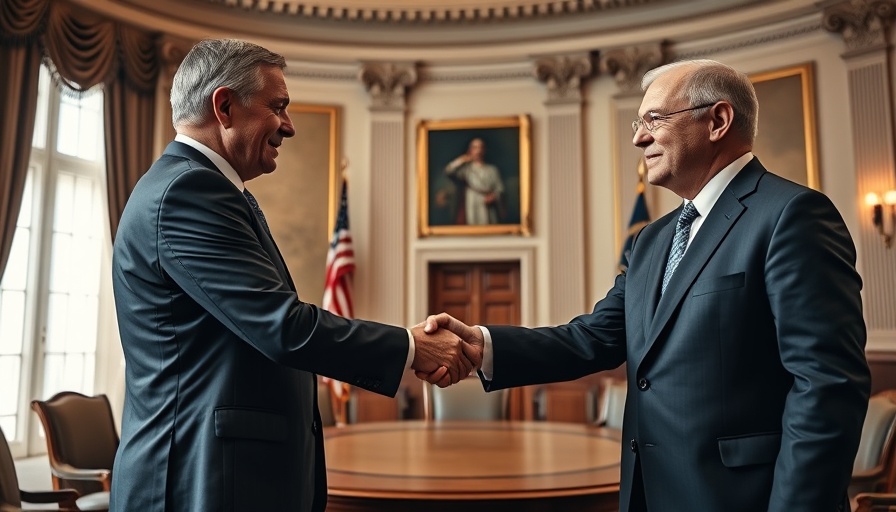
Putin's Strategic Messaging: An Award with a Hidden Intent
The recent awarding of the Order of Lenin by Russian President Vladimir Putin to a U.S. envoy has reverberated through the corridors of power in Washington. This gesture, aimed at sending a pointed message to the United States, reflects Putin's penchant for psychological operations designed to unsettle his adversaries. The award was intended for Juliane Gallina, a senior CIA official whose son, Michael Gloss, died fighting for Russia during the Ukraine conflict. At 21, Gloss struggled with mental health issues, a detail that adds a layer of tragedy to an already complex geopolitical narrative.
A Grief-Fueled Controversy: The Response of U.S. Officials
In response to the award, CIA officials stated that Gloss's death did not constitute a national security issue. Despite this, the optics are troubling. Gloss was not an employee of the CIA; rather, his death has raised troubling questions about the psychological struggles faced by many young people today and their affiliations in conflicts far more complicated than they can navigate.
This incident demonstrates that even while top political figures conduct high-stakes negotiations, deeply personal and emotional issues remain tied to international politics. The lack of an official comment from the CIA or the White House further points to the sensitive nature of the situation and the complexities surrounding U.S.-Russia relations.
Putin’s Award: A Political Game or Strategic Diplomacy?
While many speculate that Putin's aims are only malicious, there are also theories suggesting a calculated approach to diplomacy. The award not only highlights an unfortunate reality for Gallina but does so in a manner meant to stoke discomfort within the U.S. government. In essence, the award acts as a message that challenges U.S. perceptions of involvement in foreign conflicts, intending to raise questions about commitments and loyalties.
Trump's Frustrations: Navigating Complicated Waters
The backdrop of this award also shows the growing tensions during the Trump administration, as Trump was reportedly frustrated with the Kremlin at this time, vowing to impose secondary tariffs. His diplomatic engagements through Steve Witkoff were a series of high-stakes negotiations marked by mistrust and underlying tensions. This latest event could significantly impact future diplomatic talks and decisions regarding tariffs and sanctions against Russia.
The Broader Implications: Understanding Global Politics in 2025
As we discuss current events in 2025, the implications of this exchange stretch beyond just individual actors. They expose the fragile context of U.S.-Russian relations, where personal loss intersects with national interests. The dynamics of warfare, diplomacy, and emotional resonance shape how nations respond to crises globally. With many citizens looking toward daily news digest updates, understanding these elements is crucial for grasping the complexities of global governance.
Calling for Thoughtful Engagement: How Citizens Can React
For the engaged citizen, this incident offers a poignant reminder of the human costs of war and the importance of thoughtful engagement in global affairs. It is the responsibility of individuals to stay informed not just through breaking news but also by understanding the narratives that shape our world. As global citizens, it is crucial to demand greater accountability from leaders and foster discussions that transcend political divides.
Conclusion: Navigating the Complex Landscape of World News
This incident involving Putin and the Order of Lenin serves as a microcosm of the broader challenges in U.S.-Russian relations today. The sensitivities around personal tragedies intermixed with national politics reflect the urgent need for ongoing dialogue and responsible governance. As we navigate this landscape, let us remain attentive and proactive in our political engagement to ensure that tragedies like that of Michael Gloss lead to constructive conversations rather than mere political fodder.
Stay updated on the latest headlines by tuning in and demanding in-depth analysis of world news updates that matter to you. Our understanding of international affairs starts with informed conversations—let's be part of that dialogue.
 Add Row
Add Row  Add
Add 




Write A Comment